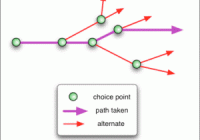An Evaluation of Thomistic Metaphysics – Part 1 – Intro
This post begins a series on Thomistic Metaphysics. In this introductory post I explain my motivations in undertaking this series. (1) Better understanding I went to graduate school at Fordham University. It’s run by the Jesuits, a Roman Catholic monastic order. And since Thomas Aquinas is in many respects “The Philosopher” of the Roman Catholic… Read More »
